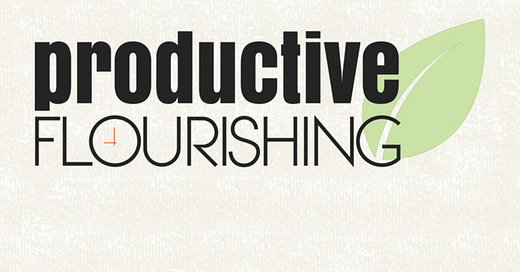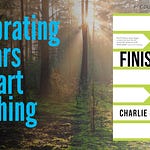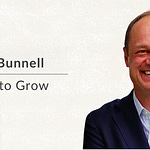Michelle Jones, founder of the Wayfinding Academy, joins Charlie on the show to talk about the college experience for students at the Wayfinding Academy. Instead of spending two to four years taking classes and then figuring out who they want to be in the world, students learn to live life on purpose and then use that knowledge to sculpt their learning experience. One of the members of the first group of students, Austin Goldberg, also joins Michelle and Charlie to share his experience.
Key Takeaways:
[3:40] - Michelle shares the story of Wayfinding. Michelle had been working as a professor for 16 years, and she began feeling that the way higher education worked was backwards. Generally, students were asked to make decisions and determine plans up front, without getting a chance to discover their purpose until they were already finished. About two and a half years ago, Michelle decided to quit her job as a professor and start her own college to flip that experience around. At Wayfinding, they start with the questions first and determine what students want to do in the world, and how students and faculty can work together to figure out the steps to achieve it. When they leave Wayfinding, students know what they’re doing and in most cases are already doing it.
[7:40] - In higher education, there seems to be a front-loading of the question “What do you want to do?” Often times, this makes students have to choose an occupation rather than focusing on who they want to be in the world. At Wayfinding Academy, students receive their Associate’s Degree in “Self and Society.” Throughout their education, students explore who they are, as well as what is going on in the world, and the goal is to figure out how they can put those two things together in a meaningful way. From there, it is presumed that students will figure out a way to earn an income in a way that supports the life they want to have.
[9:40] - While there may still be career pivots in the adult journey of those students, Wayfinding helps students learn how to ask the appropriate questions to figure out how to navigate those transitions.
[12:23] - At Wayfinding, they focus on the six character traits outlined in their promise:
Empowered to thrive throughout the rest of their lives 2. Embrace curiosity 3. Willing to stretch 4. Understand the importance of conscientiousness 5. Know how to create community and 6. Understand what it means to live life on purpose.
[13:37] - Within those character traits, they identify 10 learning objectives, some of which are, how to ask good questions, how to be a good critical thinker, how to collaborate, why story matters, what it takes to do something epic, and how to make a plan for something hard that requires other people’s help. These skills are transferrable no matter what students choose to do.
[15:53] - As the Chief Academic Officer, Michelle has been collecting data to gauge the effectiveness of the program and students. When they started looking to hire additional crew members, they began to examine what qualities they expect of their staff and how that overlaps with what they expect of their students. This helped to shape their promise.
[19:20] - Austin shares his experience about discovering and getting started with Wayfinding Academy. When he was approaching high school graduation, he was on the traditional trajectory to graduate and go to a traditional college. He talks about the events of the first year of his college experience that made him start to question and evaluate his place there.
[23:20] - Austin talks about how it was difficult to choose something other than the trajectory he was already on, but he knew the environment at the private business school wasn’t for him. He started to look for people and places that cared about the things he cared about, which is how he ended up in Portland and discovered Wayfinding.
[25:52] - One of the great things about Wayfinding is there is a lot of freedom to do the things you want to do and discover the things that you’re interested in. For Austin, he has been able to discover how to express his creativity. He states that this vulnerability is also some of the hardest work they do at Wayfinding. The most important thing he’s learned about doing this type of work is that no matter what the outlet is, it’s going to bring to light the same issues and challenges Austin (and all students) faces in life, because it tests personality traits more than occupational traits.
[31:00] - One of the fundamental aspects of Wayfinding is that when you live your life on purpose, and do work purposefully that matters to you, all your “stuff” does come up. Charlie talks about one of the labs he taught at Wayfinding, and Austin shares his experience working through the project of that lab, what he learned from it, and how it has carried over into other aspects of his life.
[36:15] - One of the big projects Austin has been working on during his time at Wayfinding is figuring out what it means to do something epic or live an epic life. He speaks about what he has learned about this during his experience so far.
[40:07] - Michelle talks about some other students’ journeys. Student cohorts are made up of a diverse age range, but they all focus on living life on purpose and being in a supportive learning community as they figure that out. The Wayfinding experience seems to work equally well for people who have a small idea of what they want to do with their lives and people who have no idea.
[45:24] - Michelle discusses the guide program at Wayfinding. This was an aspect that couldn’t truly be tested until they actually had students, but they’ve done some experimenting to figure out what seems to work. Developing the guide program has also opened conversation with the students to help shape the role of the guides.
[52:06] - Michelle and Charlie talk about some of the unique aspects of figuring out the systems within such a dynamic program. It has been a process for the faculty and students alike to determine what is going to work best for their program.
[55:45] - Austin’s invitation for listeners: Look for areas in your life where you are doing things a certain way just because that’s how they’re done, and challenge that. You don’t always have to do things one way just because that’s how they’ve always been done.
[57:01] - Michelle’s invitation to listeners: If after listening to today’s episode, you were inspired by or desire to be a part of this program, reach out and start a conversation! The next cohort starts on August 28th, and they are always looking for new friends, fans, and supporters.
Mentioned in This Episode:














Share this post